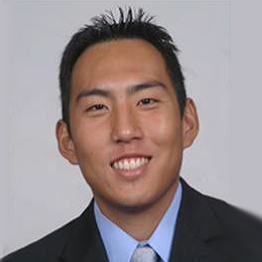The Path Less Traveled: Industry, Innovation and Everything in Between
"I shall be telling this with a sigh
Somewhere ages and ages hence:
Two roads diverged in a wood, and I –
I took the one less traveled by,
And that has made all the difference."
– Robert Frost from The Road Not Taken

At the age of 21, fresh out of college with a degree in biomedical engineering, I found myself working in the health care industry as a representative of the largest medical device company in the world. Like Jamie Randall from Love & Other Drugs, I was trained to pitch my company's products to electrophysiologists over brief conversations at the scrub sink and during short walks between patient rooms. The territory I covered had an incredibly high patient care need and there were no advanced cardiovascular fellows, so I was seeing patients with permanent pacemakers and ICDs, guiding attending cardiologists and cardiac surgeons during device and lead implants in the operating room, and taking call at night and over weekends at hospitals that were more than 100 miles apart. It would be an understatement to say that I was ill-prepared for the world of cardiovascular disease, corporate sales and the complexities of the physician-industry relationship. However, during my two-year employment, I gained incredible insight into the health care industry, innovation and everything in between. Just like Jamie Randall, I would eventually give up my lucrative job to embark on a career to become a physician (albeit for different reasons).
In 2008, I matriculated at Icahn School of Medicine at Mount Sinai, and one of my earliest memories was meeting Vivek Reddy, MD, who was recruited to Mount Sinai Hospital in 2009 to become the director of electrophysiology laboratories. By the time I returned for cardiology fellowship several years later, Reddy had firmly established himself as a leader in cardiovascular innovation with the development and implementation of the leadless pacemaker, left atrial appendage occlusion device, and novel radiofrequency catheter ablation techniques using bipolar energy sources and endoscopic guidance. A quick glance at his resume reveals a heavy academic pedigree: training at premier institutions, early involvement with experimental animal studies, and most recently, clinical trial research with publications in top tier journals. In many ways, this roadmap for success appeared no different than what I had seen from other prominent physician-investigators, and I struggled to uncover the hidden curriculum that would provide me with the skill set for a career in technology, innovation and entrepreneurship.
My search for this curriculum recently led me to the 2019 ACC Scientific Sessions in New Orleans, LA, where I discovered the ACC Health Care Innovation Section, led by Regina Druz, MD, FACC. Created in response to members interest in innovation, the section launched with the ACC 2017 Roadmap for Innovation health policy statement. The ACC Health Care Innovation Section is the professional home for cardiology professionals tasked with promoting technology and cardiovascular innovation in the areas of advanced health care analytics, digital health and devices, entrepreneurship, precision health, and virtual care. With funding from the ACC Innovation Grant and by partnering with ACC state chapters in New York and California, the ACC Innovation Section workup is creating local hubs and meetups where networking, education and collaboration can occur between all stakeholders. The inaugural event will be a Shark Tank Challenge hosted by the ACC New York Chapter on Aug. 2 (registration required). The ACC California Chapter plans on hosting a similar event in Fall 2019. Over time, Druz and the Leadership Council hope to expand these grassroot innovation efforts to other ACC chapters and members by providing opportunities to discuss and develop innovative ideas and technology. In addition, the ACC Health Care Innovation Section hopes to create a curriculum that will equip Fellows in Training (FITs) with the hard skills related to the innovation process, such as concept generation, prototyping, pitching and implementation. Until this framework is developed, David Cho, MD, current Leadership Council member of the ACC Health Care Innovation Section and recent graduate of the UCLA cardiovascular fellowship program, advocates that FITs become familiar with basic concepts and terminology in digital health and medicine. Examples include taking courses, reading articles and following current events; attending local innovation meetup sessions with entrepreneurs and startup groups; and taking advantage of established industry-sponsored initiatives such as the ACC Future Hub.
More than ten years have passed and I find myself only months away from starting electrophysiology fellowship. I have waited a long time just to interrogate a pacemaker again, implant an ICD again, and be immersed in the field of biotechnology and device innovation. Unlike most of my colleagues who have primarily become clinicians or researchers, I hope to develop a career in cardiovascular innovation by collaborating with device companies to build new features and improve existing ones. I remember pitching my career path during the cardiology fellowship interview process and receiving perplexed and disapproving glares from established leaders in the field. One interviewer advised me to not even pursue cardiology fellowship! I recognize the pathway of cardiovascular innovation and entrepreneurship with industry support is challenging the norms of academic medicine, but I have also come to realize that interest and resources exist for developing this career path. To echo the recent sentiment of Valentin Fuster, MD, PhD, MACC, director of Mount Sinai Heart and editor-in-chief of the Journal of the American College of Cardiology, creativity in medicine has come to encompass a spectrum of extracurricular activities that is no longer limited to traditional endeavors like basic science, clinical and translational research.
This article was authored by Edward Chu, MD, cardiology Fellow in Training (FIT) at Mount Sinai Medical Center in New York.